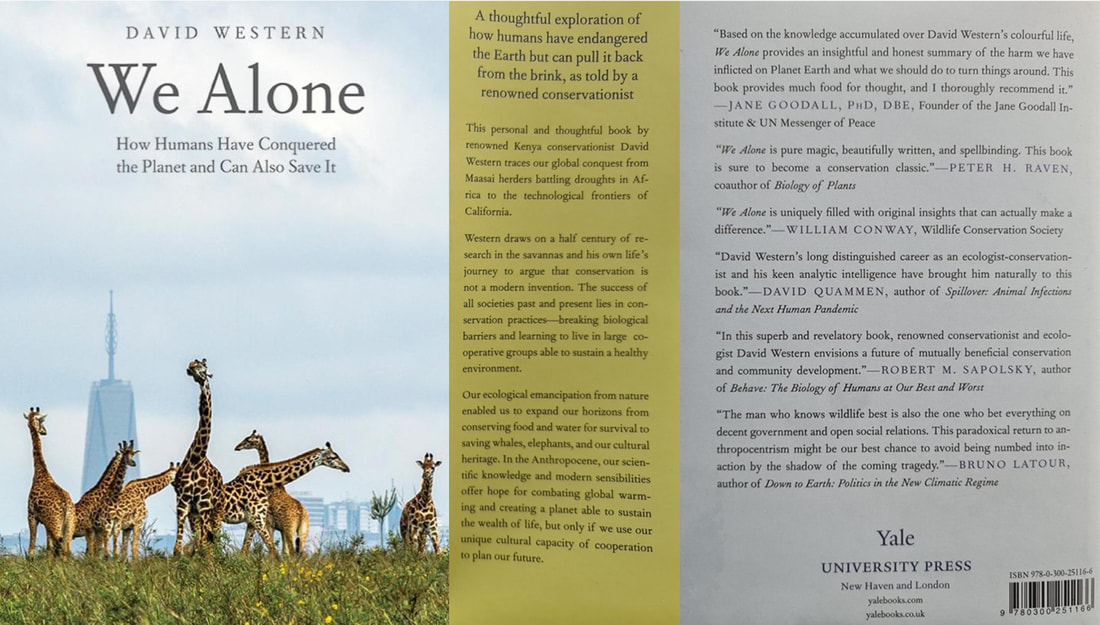
Excerpt from the Preface
We stand at a pivotal point in human history. In our rise from small, scattered Neolithic communities living precariously, we have become so supremely dominant as to reshape nature, change the course of evolution and engineer a new geological age, the Anthropocene. In the process we have created a global economy that has narrowed our food webs and stretched our supply chains to the point we can no longer sense or contain our planetary impact.
Belatedly, climate warming has risen to the top of the international agenda as hotter summers, colder winters, stronger hurricanes, torrential floods, searing droughts, and rising sea levels impinge on our daily lives. Trapped between a receding industrial age powered by toxic and dwindling fossil fuels and the Fourth Industrial Revolution and circular economy promising hope of a greener planet and sustainable lifestyles, we face a tragedy of the global commons for lack of action.
Prescriptions for a sustainable future range from strong central government control to trusting in the invisible hand of the free-markets and rationale choices. Neither Big Government nor Free Market solutions has yet solved the ultimate human challenge of living within planetary limits.
In We Alone I look for answers by delving into how we rose from a lowly savanna primate to conquer the Earth and examine how successful societies avoided the pitfalls of overuse and social breakdown. My exploration is partly a personal voyage tracing my evolution from hunter to conservationist and highlighting insights I’ve gleaned from observing communities: from the Maasai surviving droughts, to Californians up against intensifying droughts and wildfires caused by global warming. I also draw on scientific discoveries over the last half century to show how we humans are far from being constrained by the selfish gene and limited by local ecology; instead our success lies in cooperation and cultural institutions that enable us to create novel economies and lifestyles that defy the biological imperative to reproduce to the limits of food supply.
I argue that our global conquest lay in breaking biological barriers, domesticating the selfish gene, and curbing the downsides of our actions for larger common gains. The more ecologically emancipated we became, the greater our ability to shift beyond conserving food and water for survival to saving whales, art, music, and cultural traditions, based on our new-found knowledge and sensibilities. Conserving other species lifts us to the highest plane of altruism, beyond kinship, tribe, and economic self-interest.
Our future well-being depends on our unique capacity for cooperation, foresight, and planning as well as on new technologies and green economies, rather than in using a vanishing Pleistocene Age as a template. No less than in the past, our success hinges on using our emotions, morality, and expanded empathy to create the world we wish for rather than the polluted and degraded planet we have inherited.
We Alone takes up where Aldo Leopold’s A Sand County Almanac leaves off by showing that we can scale up from husbanding the land to sustaining the planet within boundary limits. Neither the end-of-nature pessimists nor rational optimists offer solutions for cleaning up the global problems we have created. Our future lies instead in the collective actions of billions of citizens rather than philosophical debates and scientific prescriptions.
We Alone is written for a popular audience but is also intended to appeal to students looking for answers to who we are and how we can become good a custodian of the global commons.
Get your copy here.
 RSS Feed
RSS Feed
